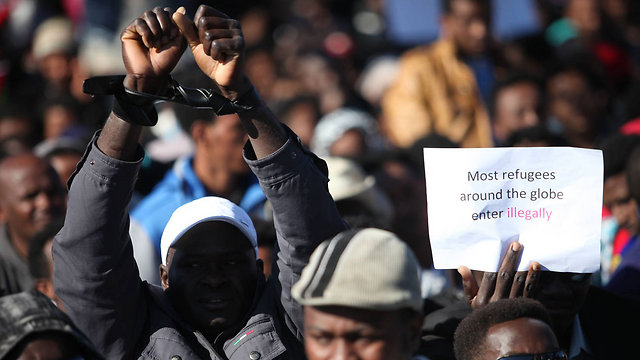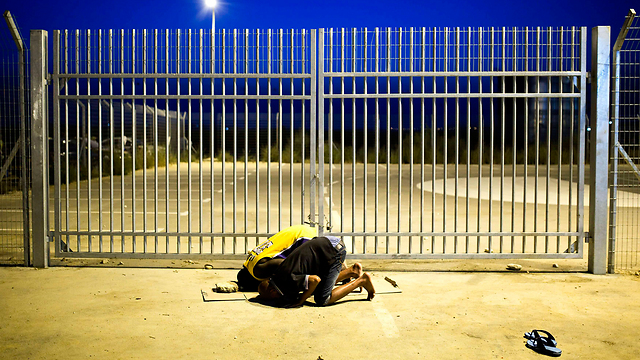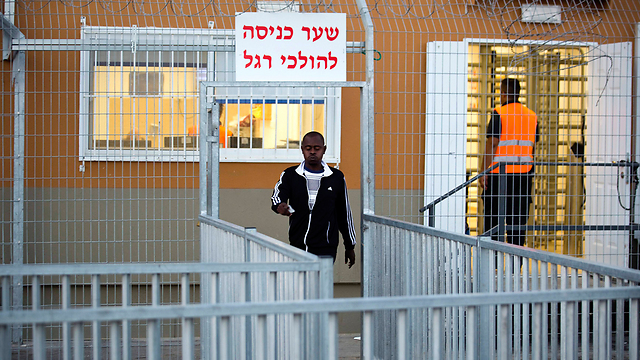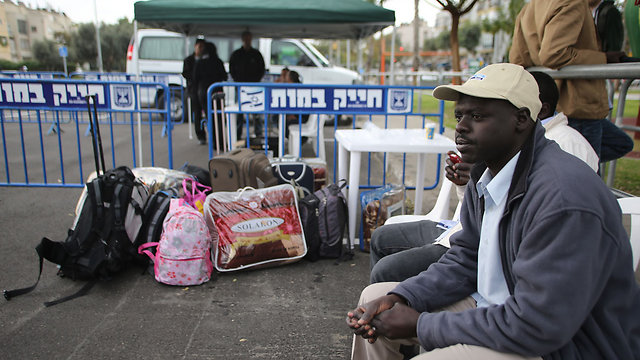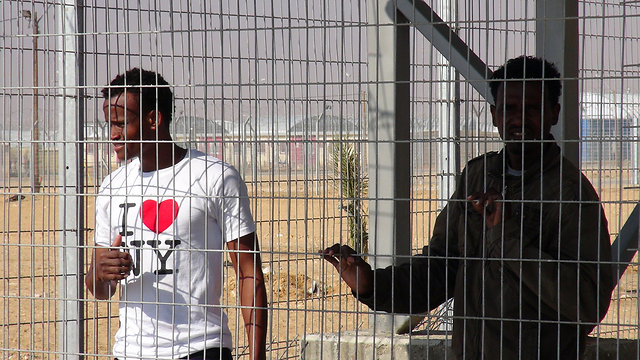
Gov't unanimously approves new 'Infiltrators Law'
After High Court shoots down two version of law hoping to prevent African asylum seekers from entering Israel, gov't passes third version, which still includes problematic legal clause permitting detention without trial.
The government has unanimously authorized a bill intended to prevent the 'infiltration' of African asylum seekers into Israel. This is the bill's third formulation, after the first two versions were shot down by the High Court for infringing on migrant's basic human rights.
The new version of the bill, called the Infiltration Prevention Act, will allow the government to hold the asylum seekers for up to 20 months in the 'open-prison' Holot Detention Center, despite the fact that the detention clause was the reason the court nullified the two previous versions.
The new amended version will also see asylum seekers entering Israel after the law has passed sent to Saharonim Prison - the original prison designated for the migrants – and then transferred to Holot for another 20 months.
The High Court ruled on September 22 that the government could no longer detain illegal migrants for up to a year without trial and ordered the closure of the Holot Center, deep in the Negev desert in southern Israel, within 90 days. A year ago, the High Court struck down a similar law allowing migrants to be held for up to three years without trial in Saharonim.
Around 2,000 Africans are currently held there, out of the roughly 48,000 thousand currently in Israel. Since Israel completed construction on a border fence along the border with Egypt, the number of those entering Israel has plummeted to a handful.
Related stories:
- Judicial system expresses concern after ministers approve High Court bypass bill
- Netanyahu orders new legislation against illegal immigrants
- Op-ed: Cheap populism against High Court uncalled for
Despite the shift from the Saharonim Prison to the Holot Detention Center – which is an 'open' facility from which the asylum seekers can come and go as long as they check in three times a day, no small feat in light of center's isolated location in the desert – the court is likely to strike down this version as well, as it took issue with the principle of detaining the illegal migrants without trail, and not with the duration of the incarceration.
Moreover, the government has also begun to promoting a 'High Court bypass bill' which will allow the government to enact the bill and circumnavigate the High Court's objections. Nonetheless, the bill does attempt to address some of the issues raised by the court: For example, instead of checking in three times a day, asylum seekers will need to register only once. It also stipulates that those employing illegal migrants will need to pay them severance which they will receive when they leave Israel, in a bid to encourage them to leave.
It also cracks down with hefty fines on those employing migrants who have been ordered to appear at the Holot Center and are thus unemployable.
The Knesset's Interior Affairs committee will need to discuss the bill and rush it through legislation if the government wants to see the bill passed and confirmed before the detention center is closed on December 22, the date set by the High Court.
The bill's amendment was formulated on the backdrop of severe disagreement between former interior minister Gideon Sa'ar and Attorney General Yehuda Weinstein, who also expressed unease regarding the bill's legality.
Now legal experts say that the renewed attempt by Interior Minister Gilad Erdan and head of the committee, MK Miri Regev, to see the law pass could put the attorney general in a bind in which he will not be able to protect the High Court's ruling.
The asylum seekers have been a highly contentious issue, pitting some residents of Tel Aviv's southern neighborhoods, which have buckled under the massive influx of migrants, against human rights groups. In the meantime, both sides seem to be unabashedly against the new bill.










